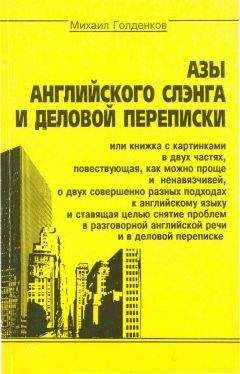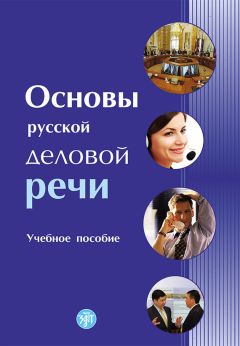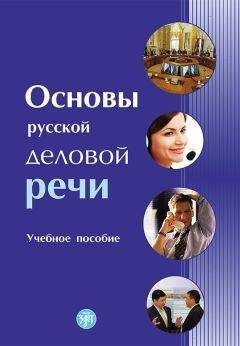Илья Франк - Английский язык с Р. Киплингом. Истории просто так
‘Fiddle!’ said the Leopard. ‘I remember them perfectly on the High Veldt, especially their marrow-bones. Giraffe is about seventeen feet high, of a ‘sclusively fulvous golden-yellow from head to heel; and Zebra is about four and a half feet high, of a ‘sclusively grey-fawn colour from head to heel.’
‘Umm,’ said the Ethiopian (м-да, — сказал Эфиоп), looking into the speckly-spickly shadows of the aboriginal Flora-forest (вглядываясь в пятнисто-пятнашные тени леса с туземной Флорой). ‘Then they ought to show up in this dark place like ripe bananas in a smoke-house (тогда они должны бросаться в глаза в этом темном месте, как спелые бананы в коптильне; to show up — четко выделяться).’
But they didn’t (но они не бросались). The Leopard and the Ethiopian hunted all day (Леопард и Эфиоп проохотились весь день); and though they could smell them and hear them (и хотя они чуяли их и слышали их), they never saw one of them (они так и не увидели /ни/ одного из них).
‘For goodness sake (для пользы дела[45]; for goodness sake — ради Бога),’ said the Leopard at tea-time (сказал Леопард во время вечернего чая), ‘let us wait till it gets dark (давай подождем до темноты / пока не cтемнеет). This daylight hunting is a perfect scandal (эта охота среди бела дня — сущий позор; scandal — скандал; позорный, постыдный факт).’
banana [bq'nRnq], though [Dqu], scandal [skxndl]
‘Umm,’ said the Ethiopian, looking into the speckly-spickly shadows of the aboriginal Flora-forest. ‘Then they ought to show up in this dark place like ripe bananas in a smoke-house.’
But they didn’t. The Leopard and the Ethiopian hunted all day; and though they could smell them and hear them. they never saw one of them.
‘For goodness sake,’ said the Leopard at tea-time, ‘let us wait till it gets dark. This daylight hunting is a perfect scandal.’
So they waited till dark (и они подождали до темноты), and then the Leopard heard something breathing sniffily in the starlight (а потом Леопард услышал, как кто-то дышит насмешливо в свете звезд) that fell all stripy through the branches (который падал совершенно полосатый сквозь = между ветвей; to fall — падать), and he jumped at the noise (и он прыгнул на звук), and it smelt like Zebra (и это пахло Зеброй; to smell — пахнуть), and it felt like Zebra (и оно на ощупь было, как Зебра), and when he knocked it down (а когда он сбил его с ног) it kicked like Zebra (оно лягалось, как Зебра), but he couldn’t see it (но он не мог увидеть его). So he said (и он сказал), ‘Be quiet (будь спокойна = угомонись), O you person without any form (О ты, бесформенная личность). I am going to sit on your head till morning (я посижу у тебя на голове до утра), because there is something about you that I don’t understand (потому что есть нечто в отношении тебя, чего я не понимаю).’
branch [brRnC], quiet [kwaIqt], person [pWsn]
So they waited till dark, and then the Leopard heard something breathing sniffily in the starlight that fell all stripy through the branches, and he jumped at the noise, and it smelt like Zebra, and it felt like Zebra, and when he knocked it down it kicked like Zebra, but he couldn’t see it. So he said, ‘Be quiet, O you person without any form. I am going to sit on your head till morning, because there is something about you that I don’t understand.’
Presently he heard a grunt and a crash and a scramble (через некоторое время он услышал ворчанье, и треск, и /звуки/ борьбы), and the Ethiopian called out (а Эфиоп крикнул), ‘I’ve caught a thing that I can’t see (я поймал нечто, чего я не вижу; to catch — поймать). It smells like Giraffe (оно пахнет Жирафом), and it kicks like Giraffe (и оно брыкается, как Жираф), but it hasn’t any form (но у него нет формы).’
‘Don’t you trust it (не верь ему / не доверяй этому),’ said the Leopard (сказал Леопард).
‘Sit on its head till the morning (посиди у него на голове до утра) — same as me (так же как я). They haven’t any form — any of ‘em (у них нет формы — ни у одного из них).’
So they sat down on them hard till bright morning-time (и они основательно уселись на них до светлого утреннего времени), and then Leopard said (и тогда Леопард спросил), ‘What have you at your end of the table, Brother (что на твоем конце стола, Брат)?’
grunt [grAnt], trust [trAst], bright [braIt]
Presently he heard a grunt and a crash and a scramble, and the Ethiopian called out, ‘I’ve caught a thing that I can’t see. It smells like Giraffe, and it kicks like Giraffe, but it hasn’t any form.’
‘Don’t you trust it,’ said the Leopard.
‘Sit on its head till the morning — same as me. They haven’t any form — any of ‘em.’
So they sat down on them hard till bright morning-time, and then Leopard said, ‘What have you at your end of the table, Brother?’
The Ethiopian scratched his head and said (Эфиоп почесал /свою/ голову и сказал), ‘It ought to be ‘sclusively a rich fulvous orange-tawny from head to heel (оно должно быть ‘сключительно буро-рыжевато-коричневым с головы до пят), and it ought to be Giraffe (и оно должно быть Жирафом); but it is covered all over with chestnut blotches (но оно все покрыто каштановыми пятнами). What have you at your end of the table, Brother (/а/ что на твоем краю стола, Брат)?’
And the Leopard scratched his head and said (и Леопард почесал /свою/ голову и сказал), ‘It ought to be ‘sclusively a delicate greyish-fawn (оно должно быть ‘сключительно нежно серовато-желтовато-коричневым), and it ought to be Zebra (и оно должно быть Зеброй); but it is covered all over with black and purple stripes (но оно все покрыто черными и фиолетовыми полосками). What in the world have you been doing to yourself, Zebra (что же ты сделала с собой, Зебра; what in the world — усилительная конструкция[46])? Don’t you know (разве ты не знаешь) that if you were on the High Veldt (что если бы ты была на Высоком Вельде) I could see you ten miles off (я бы увидел тебя за десять миль)? You haven’t any form (у тебя нет формы).’
fulvous ['fAlvqs], tawny ['tLnI], cover ['kAvq]
The Ethiopian scratched his head and said, ‘It ought to be ‘sclusively a rich fulvous orange-tawny from head to heel, and it ought to be Giraffe; but it is covered all over with chestnut blotches. What have you at your end of the table, Brother?’
And the Leopard scratched his head and said, ‘It ought to be ‘sclusively a delicate greyish-fawn, and it ought to be Zebra; but it is covered all over with black and purple stripes. What in the world have you been doing to yourself, Zebra? Don’t you know that if you were on the High Veldt I could see you ten miles off? You haven’t any form.’
‘Yes,’ said the Zebra (да, — сказала Зебра), ‘but this isn’t the High Veldt (но это не Высокий Вельд). Can’t you see (ты разве не видишь)?’
‘I can now (теперь вижу),’ said the Leopard (сказал Леопард). ‘But I couldn’t all yesterday (но я не мог = не видел весь вчерашний день). How is it done (как это получается)?’
‘Let us up (дайте нам встать),’ said the Zebra (сказала Зебра), ‘and we will show you (и мы вам покажем).’
They let the Zebra and the Giraffe get up (они позволили Зебре и Жирафу встать); and Zebra moved away to some little thorn-bushes (и Зебра отодвинулась к небольшим колючим кустам) where the sunlight fell all stripy (где падал совершенно полосатый солнечный свет), and Giraffe moved off to some tallish trees (а Жираф отошел к высоковатым деревьям) where the shadows fell all blotchy (где падали совершенно пятнистые тени).
done [dAn], thorn [TLn], tallish ['tLlIS]
‘Yes,’ said the Zebra, ‘but this isn’t the High Veldt. Can’t you see?’
‘I can now,’ said the Leopard. ‘But I couldn’t all yesterday. How is it done?’
‘Let us up,’ said the Zebra, ‘and we will show you.’
They let the Zebra and the Giraffe get up; and Zebra moved away to some little thorn-bushes where the sunlight fell all stripy, and Giraffe moved off to some tallish trees where the shadows fell all blotchy.
‘Now watch (теперь смотрите),’ said the Zebra and the Giraffe (сказали Зебра и Жираф). ‘This is the way it’s done (вот как это делается). One — two — three (раз-два-три)! And where’s your breakfast (и где ваш завтрак[47])?’
Leopard stared (Леопард уставился; to stare — пристально смотреть, вглядываться, уставиться), and Ethiopian stared (и Эфиоп уставился), but all they could see were stripy shadows and blotched shadows in the forest (но все, что они видели, — это полосатые тени и пятнистые тени в лесу), but never a sign of Zebra and Giraffe (но никакого признака Зебры и Жирафа). They had just walked off and hidden themselves in the shadowy forest (они просто отошли и скрылись в тенистом лесу).
watch [wOC], stare [stFq], sign [saIn]
‘Now watch,’ said the Zebra and the Giraffe. ‘This is the way it’s done. One — two — three! And where’s your breakfast?’
Leopard stared, and Ethiopian stared, but all they could see were stripy shadows and blotched shadows in the forest, but never a sign of Zebra and Giraffe. They had just walked off and hidden themselves in the shadowy forest.
‘Hi! Hi!’ said the Ethiopian (хе-хе! — сказал Эфиоп). ‘That’s a trick worth learning (этому трюку стоит научиться). Take a lesson by it, Leopard (извлеки из этого урок, Леопард). You show up in this dark place like a bar of soap in a coal-scuttle (ты выделяешься в этом темном месте, как кусок мыла в угольном хранилище).’
‘Ho! Ho!’ said the Leopard (хо-хо! — сказал Леопард). ‘Would it surprise you very much to know (очень удивился бы ты, узнав) that you show up in this dark place like a mustard-plaster on a sack of coals (что ты выделяешься в этом темном месте, как горчичник на мешке угля)?’
worth [wWT], lesson ['les(q)n], soap [squp]
‘Hi! Hi!’ said the Ethiopian. ‘That’s a trick worth learning. Take a lesson by it, Leopard. You show up in this dark place like a bar of soap in a coal-scuttle.’
‘Ho! Ho!’ said the Leopard. ‘Would it surprise you very much to know that you show up in this dark place like a mustard-plaster on a sack of coals?’
‘Well, calling names won’t catch dinner (ну, оскорблениями ужин не поймаешь; to call names — обзывать, оскорблять),’ said the Ethiopian (сказал Эфиоп). ‘The long and the little of it is[48] that we don’t match our backgrounds (короче говоря, мы не вписываемся в наше окружение; to match — подходить, соответствовать /под пару; по цвету, форме и т. п./). I’m going to take Baviaan’s advice (я последую совету Павиана). He told me I ought to change (он сказал мне, что мне нужно измениться / переодеться); and as I’ve nothing to change except my skin (а так как мне нечего изменить / переодеть, кроме моей кожи) I’m going to change that (я собираюсь поменять ее).’
‘What to (на что)?’ said the Leopard, tremendously excited (спросил Леопард, чрезвычайно взволнованный).
‘To a nice working blackish-brownish colour (на приятный рабочий черновато-коричневый цвет), with a little purple in it (с небольшим /вкраплением/ пурпура в него), and touches of slaty-blue (и оттенков аспидно-синего цвета; slaty — синевато-серый, цвета сланца, аспидный). It will be the very thing for hiding in hollows and behind trees (это будет как раз то, что надо, для того чтобы прятаться в ложбинах и за деревьями).’
change [CeInG], tremendously [trI'mendqslI], behind [bI'haInd]
‘Well, calling names won’t catch dinner,’ said the Ethiopian. ‘The long and the little of it is that we don’t match our backgrounds. I’m going to take Baviaan’s advice. He told me I ought to change; and as I’ve nothing to change except my skin I’m going to change that.’




